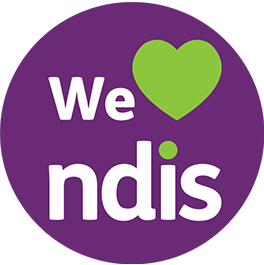Supported Independent Living (SIL)
Supported Independent Living (SIL) is one type of help or supervision with daily tasks to help you live as independently as possible, whilst building your skills. It is the paid personal supports and is most commonly used in shared living arrangements.
Key Focuses
What is Supported Independent Living?
Supported Independent Living (SIL) is the paid personal supports that includes things like having a person to help with personal care tasks, or cooking meals. SIL can help build these skills with each individual to encourage them to become more independent. This service happens in your home and you can receive SIL when you live in a home with other people. There is also SIL services available for those who live on their own, however there may be other Personal Care Supports that suit you better.
SIL is best suited for participants who have high support needs, and require a significant amount of assistance throughout the day.


Funding
Can I get funding for Supported Independent Living?
During your planning meeting you should talk about what supports you need in the home. You may discuss whether SIL is suitable for you, and your planner will assess if it is support that is reasonable and necessary. There are a number of things to consider when making this decision, including:
- your individual circumstances and needs
- your age (The NDIS funds SIL for people aged 18 and over)
- your goals and preferences
- your independence, living skills and capacity-building needs
- if modifications to your home or assistive technology may increase your independence

SUPPORTED INDEPENDENT LIVING ACCOMMODATION
Home and Living Options
My Coast Support offers housing and accomodation options for NDIS customers. We work to match each client to a housing option that is customised to your individual's needs and requirements.


INDEPENDENT LIVING OPTIONS
What are Individualised Living Options (ILOs) ?
Many people with a disability need a lot of support to live independently in the community, but don't want to live in a group home with other people. Individual Living Options (ILOs) are different ways you can do this. ILOs are tailored to each person and may take time to plan.
An example of this is a person with a disability shares their home with a supportive housemate. The housemate provides support at agreed times, and pays less rent. By doing this, the person with a disability is supported and allows you to work out of a system that is right for you, rather than having to 'fit in' to an existing model. ILOs don’t mean that a person suddenly needs less support. They are about creating different supportive relationships than paid staff working a roster of care.
FAQ's
Frequently Asked Questions
Who develops the information used to determine if SIL if the best type of support?
The information is usually developed by an allied health professional, like an Occupational Therapist.
What is a roster of care?
A roster of care is a document used to identify the type of supports you need throughout the week. This usually takes the form of a spreadsheet that divides 24 hours into 30 minute units for seven days a week.
If I am not suitable for Supported Independent Living, what other supports are available?
While you may require assistance with day-to-day life, such as help getting out of bed and getting ready in the morning, you may not require significant personal supports, such as 24-hour assistance. In this case, other NDIS funded supports are available.
What is a Support Coordinator?
A Support Coordinator is a person who helps you to understand and implement your plan. They will support you to build your skills and ability to exercise choice and control over the supports and services you receive.
with your NDIS funding.
How do people provide support in ILO if they are not paid a wage?
One of the most common ways is by reducing the rent of a co-resident because they agree to provide some support. Another way is by a reimbursement (or being paid back). Host couples or families are generally reimbursed to cover the daily support needs and living requirements for the person with disability.
Have a Question?
How to Engage our Services
For more information about the Supported Independent Living services that are available, please be sure to contact us to learn more.





